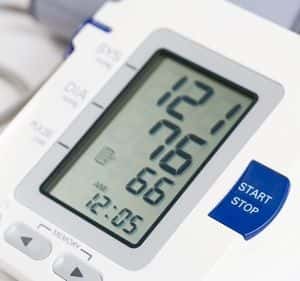
Physicians have been debating the role of high blood pressure and dementia for decades. Some studies suggest that hypertension is linked to cognitive decline while others have found that higher blood pressure in older adults actually seems to be associated with a lower likelihood of dementia (Dementia and Geriatric Cognitive Disorders, Jan-Feb, 2001; Journal of the American Geriatrics Society, Nov. 2012).
Is “Normal” Blood Pressure Counterproductive?
Many doctors try diligently to get their patients’ systolic blood pressure down to a “normal” range, 120 or so. They may prescribe two or three different antihypertensive pills to try to reach the goal, especially in older patients. But a study from Italy (JAMA Internal Medicine, online, March 2, 2015) suggests that moderation in blood pressure treatment might be prudent.
The 172 elderly Italians in the study were attending memory clinics. Two-thirds had dementia, while about a third had mild cognitive impairment. Around 70 percent were taking drugs to lower their blood pressure.
Twenty-four hour blood pressure monitoring revealed that those with the lowest systolic pressure (at or under 128 mm Hg) had a bigger drop in their performance on a cognitive function test than those whose systolic pressure ran higher.
The investigators conclude:
“The present study adds information about older outpatients with MCI [mild cognitive impairment] and dementia, suggesting that strict control of SBP [systolic blood pressure] may negatively affect cognition, with daytime SPBs of 130 to 145 mm Hg being the most appropriate therapeutic targets.”
The Bottom Line
It is becoming clear that aggressive treatment of hypertension, especially in older people with mild to moderate high blood pressure may have serious consequences. Another negative complication is dizziness. When an elderly person falls as a result of blood pressure medicine it can result in a fracture, which can lead to disability and death.
That is why we generally advocate the least amount of medicine necessary. No longer is the target 120/80 a goal that must be achieved at all costs. Non-drug approaches can often be quite effective. Our Guide to Blood Pressure Treatment offers many such options.
By the way, for people who were not taking blood pressure medication, the systolic blood pressure did not appear linked to cognitive decline. That suggests that getting blood pressure under control without medications is desirable.

